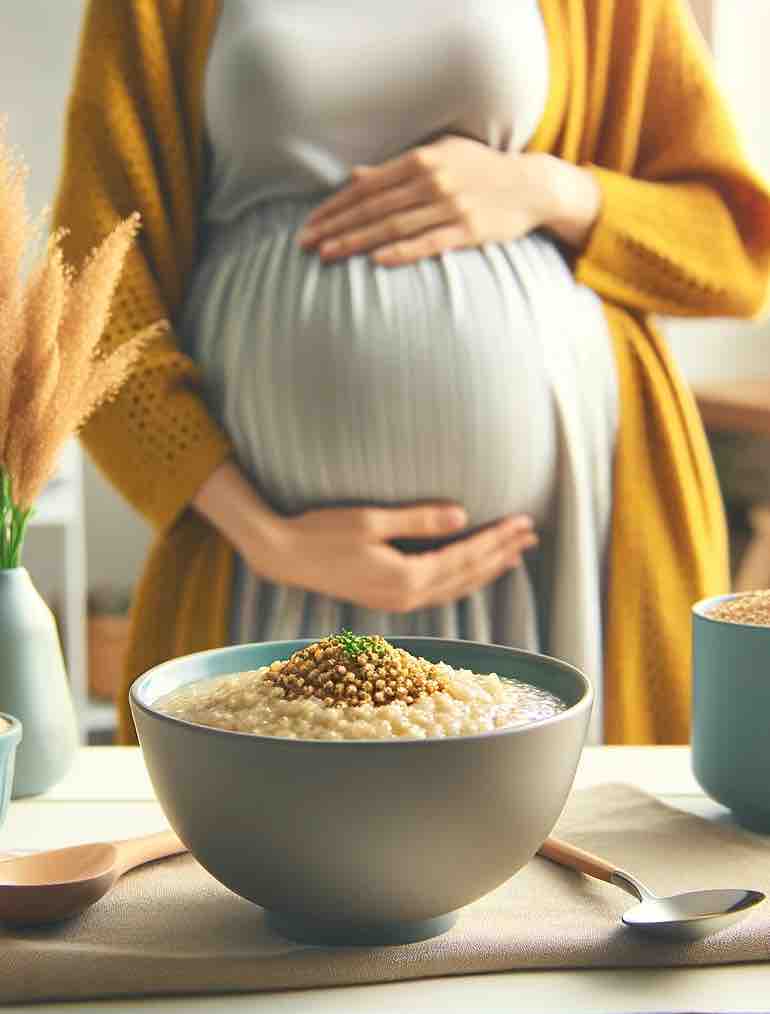
Millets are increasingly being recognized as a nutritious and beneficial food choice during pregnancy. These grains offer a rich composition of essential nutrients, making them a smart addition to a pregnant woman’s diet.
Key Nutritional Benefits of Millets During Pregnancy:
- Rich in Essential Nutrients: Millets are packed with vital nutrients like calcium, magnesium, iron, phosphorus, and a range of B vitamins including folate. Folate, in particular, is crucial during pregnancy for preventing neural tube defects in the developing fetus.
- High Protein Content: Millets contain a significant amount of protein, which is essential for the growth and development of fetal tissues and maternal muscles.
- Dietary Fiber: The fiber content in millets aids digestion and helps manage constipation, a common issue during pregnancy.
- Iron-Rich: Iron is vital for maintaining healthy blood levels and preventing anemia, a common concern during pregnancy. Millets contribute to meeting the increased iron needs during this time.
- Supports Bone Health: The calcium and magnesium in millets are important for the development of the baby’s bones.
- Good for Heart Health: Millets help in balancing cholesterol levels, which is important as abnormal cholesterol levels can lead to hypertension and other complications during pregnancy.
- Complex Carbohydrates: They provide sustained energy levels and help in managing blood sugar levels, which is crucial during pregnancy.
How to Incorporate Millets in Pregnancy Diet:
- Millet Porridge: Cook millets with milk and sweeteners to create a nutritious porridge.
- Millet Upma: Prepare upma using millets for a healthy breakfast or snack.
- Millet-Based Salads: Use cooked millets as a base for salads, mixed with vegetables and light dressing.
- Baking with Millet Flour: Millet flour can be used in baking recipes for healthier muffins or bread.
- Millet Rotis or Chapatis: Make rotis using millet flour for a nutritious alternative to wheat chapatis.
Safety and Considerations:
Millets are generally safe for consumption during pregnancy. However, it’s always best to consume them in moderation and consult with a healthcare provider, especially if there are any dietary concerns or allergies. Additionally, while millets contain compounds known as goitrogens that can interfere with thyroid function, the levels in millets are generally low and may not pose a risk when consumed in moderation.
In conclusion, millets are a nutritious and versatile grain that can significantly contribute to the health of both the mother and the developing baby during pregnancy. With their array of nutritional benefits and the ability to be incorporated into various dishes, millets can be a valuable addition to a pregnancy diet.
10 FAQs About Millets During Pregnancy
- Are millets safe to eat during pregnancy? Yes, millets are safe and highly beneficial during pregnancy when consumed in appropriate amounts. They are packed with nutrients essential for maternal and fetal health.
- What nutrients in millets are beneficial for pregnancy? Millets are rich in folate, iron, calcium, magnesium, and various B vitamins, all crucial for fetal development and maternal health.
- How do millets help in fetal development? Millets provide folate, which helps prevent neural tube defects, and iron, which is vital for the baby’s brain development. Calcium and magnesium support bone development.
- Can millets help with pregnancy-related constipation? Yes, the high fiber content in millets aids digestion and helps alleviate constipation, a common issue during pregnancy.
- Are millets a good source of energy for pregnant women? Absolutely. Millets contain complex carbohydrates that provide sustained energy, crucial for pregnant women.
- How can I incorporate millets into my pregnancy diet? Millets can be used to make porridge, upma, salads, rotis, and even incorporated into baking recipes as flour.
- Can eating millets reduce the risk of gestational diabetes? The low glycemic index of millets helps in managing blood sugar levels, which can be beneficial in reducing the risk of gestational diabetes.
- Do millets have any mood-enhancing properties? Yes, millets contain amino acids that help in mood regulation, beneficial during the emotional fluctuations often experienced in pregnancy.
- What types of millet are best during pregnancy? All millet varieties are beneficial, but finger millet (ragi) and pearl millet are particularly noted for their high calcium and iron content, respectively.
- Is there any risk of allergies with millets during pregnancy? While allergies to millets are uncommon, individuals should be aware of any personal sensitivities or allergies. If uncertain, consulting with a healthcare provider is recommended.
Blog Tags
millets, pregnancy nutrition, fetal development, digestive health, energy foods, low glycemic index, mood enhancement, gluten-free, iron-rich foods, calcium sources









